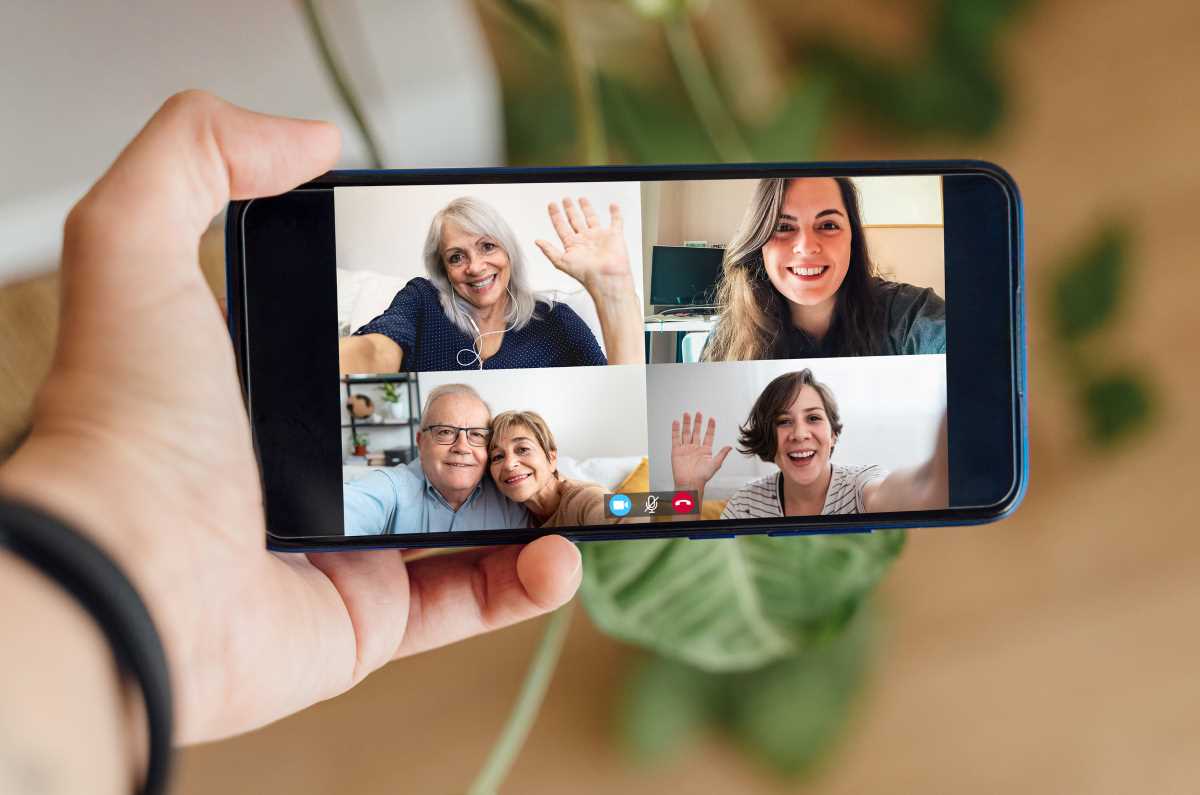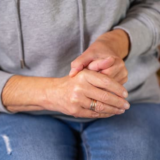Staying connected during crazy times
August 5, 2021 by Lisa Bywaters

Humans have evolved to be an incredibly social species. That’s why our connections are so important to us – with family, friends, work colleagues, teammates, walking buddies, fellow book clubbers and staff at the local coffee shop. They all play a role in shaping who we are and how we get on in the world.
So when we can’t see these people in person due to lockdowns, restrictions, quarantine and the general chaos of COVID, it’s really hard on us.
The last 16 months have been so wearing – both physically and emotionally. We’re living with heightened feelings of anxiety and stress – what will the case numbers be today, when will I be able to visit loved ones, how long will we be homeschooling, when will life go back to ‘normal’??
Unfortunately, there aren’t any simple answers for any of these questions – especially the last one.
But there’s a simple thing you can do to combat the loneliness, lethargy, emotional fatigue and general feeling of ‘meh’ that COVID is causing us to feel. And that’s staying in touch with your peeps and extended community.
How to stay connected when you have to stay apart
First, we should never forget that restrictions and social distancing measures are all about physical distance. We need to remain separate from others so that the virus can’t spread. But that doesn’t mean we have to be socially separated or isolated.
Even before the pandemic, we used technology to remain connected. COVID has just put that on the fast track, and we’ve become familiar with video chats, long phone calls, and messaging.
So what else can you do to ensure you remain connected with the people and places important to you?
Check in. And no, there’s no QR code involved in this one ?! Take time daily to check in with yourself. How are you doing? If you’re feeling anxious or lonely, or overwhelmed, reach out to others for support. If you’re feeling fatigued or in pain, what can you do to deal with this? Taking a few moments to check in with yourself each day helps you deal with any issues before they become significant problems.
Take time to connect with those in your own home – your partner, kids, parents, siblings, housemates, pets, plants??. How’s everyone doing? Share your experiences and feelings about the day. And if you want to go beyond the small talk, try these ‘36 questions for increasing closeness’ from The Greater Good Science Center at the University of California, Berkeley (USA).
Phone a friend. Make a regular time to call/video chat with those important to you. And make that day/time sacred – nothing (other than an emergency) should get in the way of this contact.
Get everyone involved. Call your nearest and dearest for a group chat and…watch movies, listen to music, make dinner, enjoy happy hour, fold the washing, discuss a book, play online games. You can still do things together even if you can’t be together.
Get out and walk. Exercise is essential for our physical and mental health, so get out and breathe in the fresh air. Take the family for a stroll, or meet up with a friend in the park. If you can’t walk with your usual crew, link your fitness apps and compare how many steps you’ve done for a little friendly competition ?. Go on a scavenger hunt. Or send pics to your network of the things you see on your walk. Walking isn’t just a good form of exercise – it can become an adventure, or a mindfulness exercise, or a chance to see other people in the flesh (and safely distanced).
Connect with your neighbours. Have a chat over the fence as you do your gardening or peg out the laundry. Or sit in your separate yards/driveways/balconies and just natter the afternoon away. Take note of any neighbours who live on their own and reach out to them. See if they need any assistance, groceries, someone to take the bins out, or most important of all, simple human interaction. It’s what we all need to get through this.
Immerse yourself. There are lots of online support/hobby/social/exercise groups that you can access from the comfort and safety of your own home. You can learn new things and meet new people without stepping out your door. And the beauty of online groups is they don’t even have to be in the same city, country or continent! Befriend Inc has created a handy guide to help you find and attend social groups online.
Send a care package. To someone you care about, or someone you know is having a difficult time. Send books, jigsaws, flowers, yummy food, a handwritten note. Anything that lets them know you’re thinking of them. It’ll be a lovely surprise and a boost for them, and for yourself. “As we work to create light for others, we naturally light our own way” – Mary Anne Radmacher.
Give thanks. Even though we’re tired, frustrated, anxious and sick of the stupid virus, there are still things to be thankful for. Taking time to reflect on these things helps us feel more positive and more fulfilled. Find out how you can become more grateful in your everyday life.
Volunteer your time and skills – from home. Volunteer work can be rewarding for yourself and your community. And there’s a lot of volunteer work that can be done online or remotely. So think about the types of things you’re passionate about, your skills, the amount of time you can give, and look around your local community to find the best match. Or visit GoVolunteer and search the database for volunteering opportunities.
Learn something new. There are so many organisations providing online learning courses, and many of them are free or low-cost. Just search online using your favourite search engine, and explore what’s available. Also, check out Laneway Learning, MOOCs (massive open online courses), TAFEs, colleges and community houses. You’ll come out of this pandemic with so much knowledge you’ll wow everyone at your next trivia night ?. And you’ll meet a bunch of like-minded people. Win-win!
Worship. Attending churches, temples, mosques, synagogues and other places of worship with our family and friends isn’t an option for many people at the moment. The good news is that a lot of them are now online. Contact your place of worship or search online to see what events are being streamed and when. Gather with your extended family and friends virtually after worship to celebrate together.
“Invisible threads are the strongest ties.” – Friedrich Nietzsche
Contact our free national Help Line
If you have questions about managing your pain, your musculoskeletal condition, treatment options, mental health issues, COVID-19, telehealth, or accessing services be sure to call our nurses. They’re available weekdays between 9am-5pm on 1800 263 265; email (helpline@msk.org.au) or via Messenger.
More to explore
- Connections matter: Helping older people stay socially active (PDF)
Beyondblue - How micro-interactions can help us feel less lonely during the pandemic
ABC Everyday, 29 July 2021 - There’s more to life…
Musculoskeletal Australia, 3 June 2021 - Social distancing can make you lonely. Here’s how to stay connected when you’re in lockdown
The Conversation, 17 March 2020 - Using food to stay connected in lockdown
ABC Everyday, 23 July 2021














